Having a zero-based budget for your family gives you 100% control over all of your personal finances. It allows you to allocate every cent to achieve the money goals you deem most important.
Creating a zero based budget at the beginning of each month gives you opportunities for saving, spending, and building a legacy.
While giving a job to every penny you earn, you’re building money habits that will allow you to live the financial life you want and take control of your cash.
How do You Make a Zero Based Budget for Your Family?
Here are five easy steps to creating a ZBB:
- Pull out all your bank statements or pull them up in your online banking. Find the areas that you’re spending in and jot them down. Are you spending money on housing? How about grocery stores and restaurants? Gas for your car and Amazon.
- Go through and make a list. Remember bills like insurance, internet, cell phone, any subscriptions, etc. This is also an excellent time to evaluate your spending to see if you’re overdoing it on food or shopping.
- Create a budget. Allocate a specific amount to every category. Know that this will have to be modified in the coming months. There is a learning curve for budgeting. Also, go into the process with a good chunk of time and a big cup of coffee. It does take time to create this for the newbie. Even if you’ve made budgets before, even if you’ve never done a zero-based budget for your family or home, it might take longer than you’re used to (I also recommend using a pencil).
- Keep in mind your financial goals. If you want to get rid of credit card debt, you may have to cut expenses in other areas. If you want to be prepared for expenses and holidays down the road, remember those sinking funds.
- Ensure every dollar has a category and that income minus expenses equals zero.
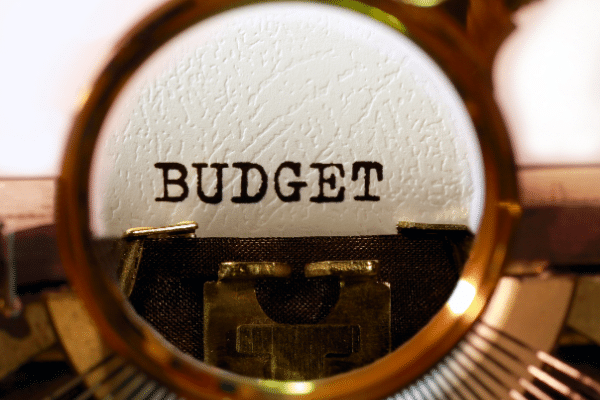
What is a Zero Based Budget?
The term ‘zero based budget’ or sometimes ‘zero-sum budgeting’ originated in business. It was a spending plan that businesses and corporations used to allocate their spending, keeping the company, employees, and shareholders happy.
Having a zero base budget for your home has a lot of fantastic benefits. Dave Ramsey teaches this form of budgeting in his books and classes.
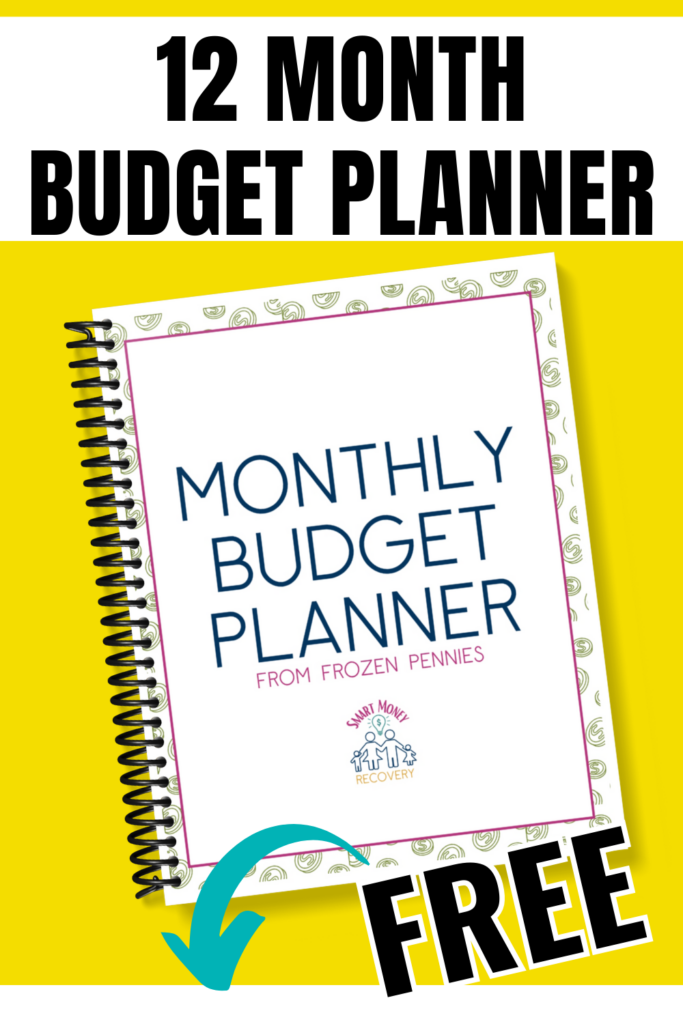
Simply stated, a zero-based budgeting process for your family means that your income minus your expenses needs to equal zero. This means that if you have more income than expenses, you still need to find a place for that leftover amount.
Whether you add it to savings or call it a checking account buffer, it needs a job.
Why is it important?
Budgeting is one of those things. I can tell you that without it, I feel like my life’s in chaos. Giving order and structure to your financial life is not a punishment or a restriction. It’s just the opposite.
Budgeting is about showing yourself and your family a little love and a lot of respect.
It’s like having an evening routine or steps you take when you head to work. You know, if something doesn’t have rhyme or reason, you feel frazzled and out of sorts. The same happens with your money.
Pros of Zero Based Budgets
- Creating a ZBB will allow you to get behind the scenes into the nitty-gritty of your finances, giving you a hard look at the facts. It will change your life. Numbers don’t lie; being all-knowing instead of ignorant about your money will open up all the possibilities you want from living.
- Zero-based budgeting for your family will allow you to invest in the most important things.
- Opening your eyes to your money management will spread out the areas you might need to know that you’re spending too much. This will allow you to dial it back and choose a different purpose for those dollars. Using that money can beef up our high-priority savings for something much bigger than take-out.
- You’ll be better placed to handle unexpected expenses and to accomplish debt repayment when you know what your monthly income is and what will be in the bank account.
- Every dollar will have a purpose, and you can work towards things like an emergency fund or other strategic goals with your new financial plan.
Show me your budget and I’ll show you what you want from life.
Cons of the Zero Based Budget
- It’s work. I’m not going to lie or try to sugarcoat it. The first time I did a zero-based budget, it took a few hours and a LOT of erasing.
- You must be committed. Playing with the budget has to be done every month or every paycheck if you’re doing the budget by paycheck method to feel the long-term benefits. Every. Single. Month.
- You need to have the right mindset. This is an act of giving. It’s a gift for you and your family. Having a cup of coffee on a Saturday morning all by yourself to work on your budget isn’t selfish, just the opposite.
- Having a healthy money mindset about money will come in handy, working toward those bigger long-term goals.
- If you’re working with a partner on this, there may be a need for a deep discussion about finances. Both partners need to be in agreeance with financial goals. Confessions may need to happen when it comes to money management. Someone may need to come clean about spending habits.
Simplified Example of a Zero Based Budget
This month, your family has $ 5,000 coming in from paychecks.
- Mortgage $2875
- Car payment $345
- Food $500
- Cable and internet. $185
- Can insurance $120
Your total expenses are $4025. You have $975 left to allocate.
Keeping $200 in your checking account as a buffer, you have $775 to put toward your debt, leaving you with zero.
Of course, the chances of your budget being this simple is pretty low, but you get the idea.

What if You Have More Expenses Than Money?
Once you get your budget down on paper and implement the math equation, you might find that things don’t balance perfectly. There are two options. Cut back on expenses or make more money.
Cutting Back on Spending
This is a real thing. Many of us are living paycheck to paycheck, finding there are more month left than there is money.
It is time for a heart-to-heart chat about embracing the frugal lifestyle and making some cost savings. Deciding on what you genuinely NEED rather than want to make it work. Risking your kids being “mad at you” when you cut out cable might be an example of the first step to take.
Deciding that eating out three times a week makes no sense when you don’t have the money. One of the best ways to highlight this to everyone is to have a clear budget you are following.
Most of the time, there are areas where you can be more frugal.
Make More Money
Once you have trimmed your spending and find that you still don’t have an amount to get you to those financial goals, it might be time to make more money.
Consider a side hustle or second job. It might not be something you need to do forever. It’s something that can propel you forward.
How about becoming a freelance writer or a virtual assistant? While these jobs can end up with variable income, there’s also huge potential to make more money and improve your financial situation.
Jobs like lawn care, babysitting, or cleaning homes and businesses can lead to bigger things and more money.

Differences Between Traditional Budgets and Zero Based Budgets
Traditional budgeting methods use past spending to guide the present budget. They are simple and based on your history. They are more complex than zero based budgets and don’t offer the details that can be helpful.
Zero based budgets begin with the end in mind. Everything equals zero. ZBB uses the projected costs instead of last year’s (or months) data.
They are more complex and time-consuming to set up as a new budget but will give you the details of your spending. This is why businesses use this budgeting model.
ZBB requires involvement often, which is why it works well with the budget by paycheck method.

Final thoughts on zero based budgeting for your family…
I am detail-oriented, and I have large financial goals that I want to accomplish. So, I need a zero-based budget’s easy yet complex workings. Having money slip through the cracks doesn’t work.
I like looking at the income and then deciding where our money needs to go based on our needs for that pay period. Because I’ve just started using this system myself, I have a miscellaneous category as I get the hang of how this works. I do plan on dissolving that as I work toward a better budget.
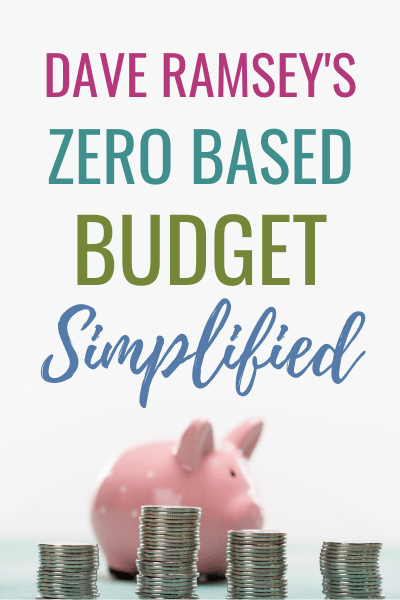



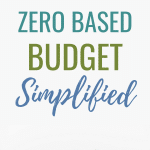

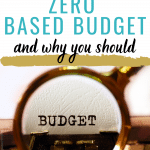
 How to Budget With An Extra Month Paycheck
How to Budget With An Extra Month Paycheck